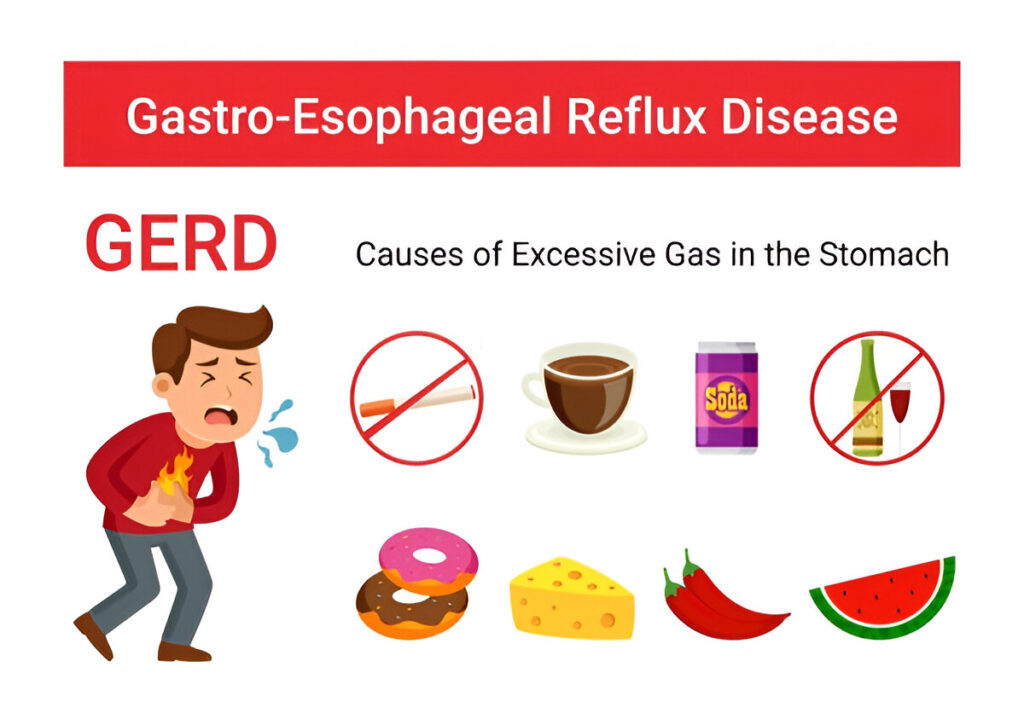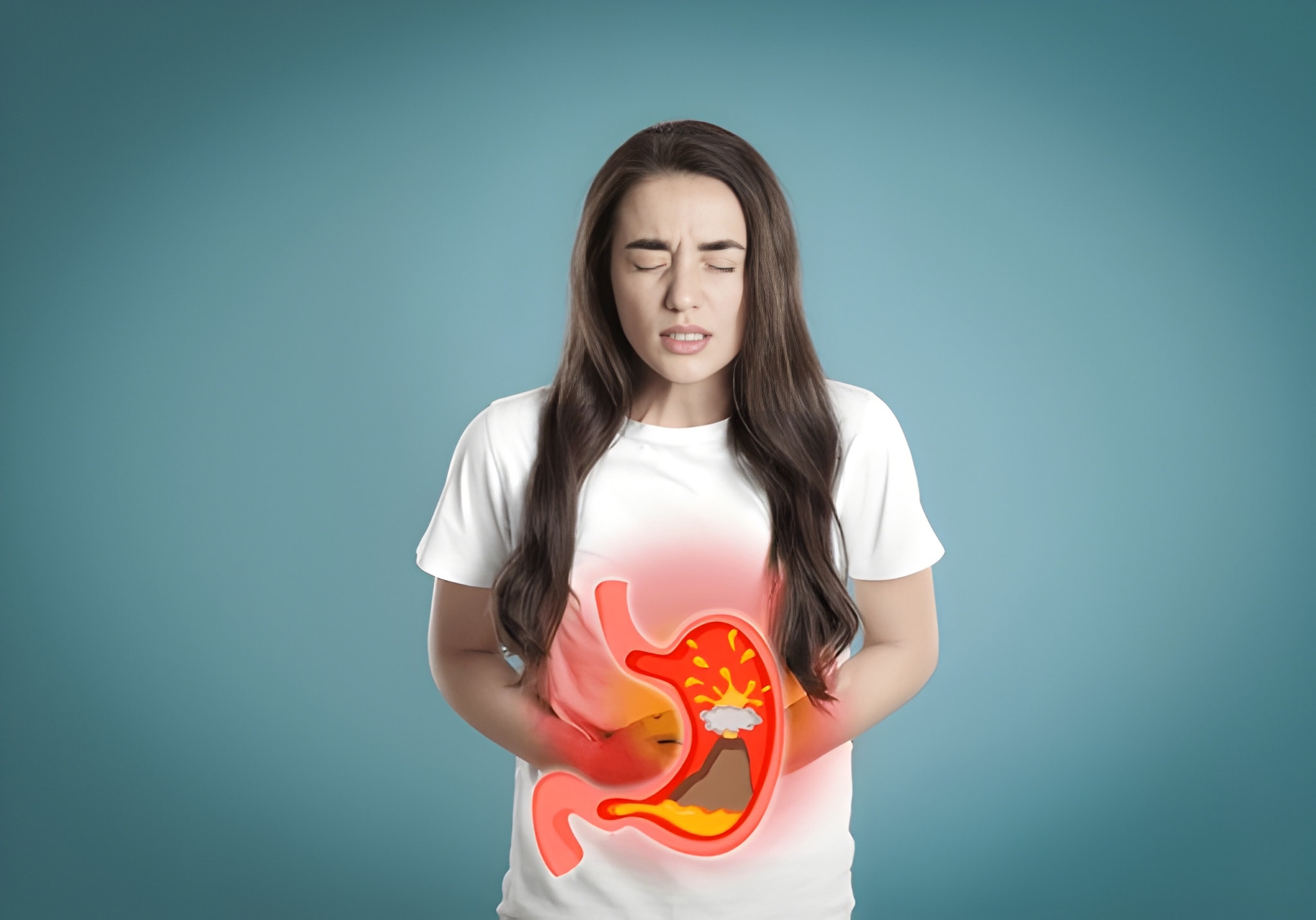What Foods Neutralize Stomach Acid Immediately?

If you’ve ever experienced that burning sensation rising from your stomach into your chest, you’re not alone. Acid reflux and high stomach acid affect millions of people daily—and diet plays a key role in both triggering and relieving symptoms.
While antacids can offer temporary relief, many wonder: what foods neutralize stomach acid immediately?
This blog explores the foods that help with acid reflux, quick home remedies, and lifestyle habits that support better digestive health.
Immediate Relief Table
| Food for Fast Relief | How It Works |
|---|---|
| Bananas | Coat & soothe the stomach lining |
| Cold low-fat milk | Neutralizes excess acid instantly |
| Ginger | Natural anti-inflammatory, aids digestion |
| Oats | Absorbs acid, gentle on digestion |
| Almonds | Mildly alkaline, absorb acidity |
| Leafy greens | High pH, neutralize acid |
| Aloe vera | Soothes irritation in the digestive tract |
| Melons | Alkaline, high water content |
| Yogurt (low-fat) | Probiotics, calms the stomach |
| Licorice root | Protects stomach lining |
| Chamomile tea | Reduces inflammation, soothes esophagus |
What causes high stomach acid and acid reflux?
This usually occurs when the Lower Esophageal Sphincter (LES)—a muscular ring that acts like a valve between the stomach and oesophagus—becomes weak or relaxes at the wrong time.
Several factors can contribute to high stomach acid and acid reflux:
- Spicy foods, citrus fruits, caffeine, chocolate, and fatty or fried foods
- Overeating or lying down after meals
- Obesity
- Smoking and alcohol
- Chronic stress and anxiety
- Pregnancy
- Conditions like gastritis, H. pylori infection
- Medications such as NSAIDs or aspirin
Understanding the root causes of your reflux is the first step toward managing them—starting with the right food choices.

What food helps with acid reflux?
There are plenty of foods that can help soothe acid reflux and prevent flare-ups—especially when they fall into one of these three categories:
High-fibre foods
Fibre-rich foods help keep you full, support healthy digestion, and may reduce pressure on the stomach, which lowers the risk of acid reflux:
- Whole grains like oatmeal, couscous, and brown rice.
- Root vegetables like carrots, sweet potatoes, and beets.
- Green vegetables including asparagus, broccoli, and green beans.
- Fruits like apples, bananas, prunes, and berries.
Alkaline foods
All foods fall on the pH scale, which measures acidity. Those with a low pH are acidic and more likely to cause reflux. Foods that reduce stomach acid are often more alkaline (higher pH) in nature:
- Bananas
- Melons
- Cauliflower
- Fennel
- Nuts
Watery foods
Eating foods with high water content can dilute and weaken stomach acid. Include hydrating options like:
- Celery
- Cucumber
- Lettuce
- Watermelon
- Broth-based soups
- Herbal tea
Adding these to your daily meals can naturally help naturally reduce acid reflux and support long-term digestive health.
What foods neutralize stomach acid immediately?
If you’re looking for foods to help with acid reflux quickly, these options may offer immediate relief by neutralising excess acid or soothing the digestive tract:
- Ginger: Acts as a natural anti-inflammatory that supports digestion.
- Cold low-fat milk: Offers temporary relief by neutralising stomach acid.
- Bananas: Naturally low in acid and soothing to the stomach lining.
- Oats: Absorbs excess stomach acid and promotes healthy digestion.
- Almonds: Mildly alkaline and can buffer stomach acid in small amounts.
- Leafy green vegetables: Have an acid-neutralising effect.
- Aloe vera: Soothes the oesophagus and helps reduce acid irritation.
- Licorice root: Protects the stomach lining and may relieve symptoms.
- Yoghurt (low-fat): Soothes the stomach and supports gut health with probiotics.
- Chamomile tea: Soothes the digestive tract and helps reduces inflammation.
While these foods may provide immediate comfort, it’s also important to address long-term triggers and habits for sustainable acid reflux relief.
What foods to avoid when you have acid reflux?
Foods commonly known to be heartburn triggers cause the oesophagal sphincter to relax and delay the digestive process, letting food sit in the stomach longer.
Avoiding these common culprits can help you manage acid reflux more effectively:
- Fried and fatty foods: These slow down digestion and put pressure on the LES, increasing acid reflux risk.
- Spicy foods: Chili, hot sauces, and other spicy ingredients can irritate the oesophagus and increase stomach acid.
- Fatty meats: Bacon, sausage, and other high-fat cuts of meat can linger in the stomach longer and trigger acid reflux.
- Cheese and high-fat dairy: Full-fat cheese, cream, and whole milk products can delay stomach emptying and promote reflux.

- Tomato-based products: Tomatoes, pasta sauces, ketchup, and salsa can trigger heartburn.
- Citrus fruits and juices: Oranges, lemons, limes, and grapefruits are highly acidic and may worsen symptoms.
- Chocolate: Contains both caffeine and theobromine, which relax the LES and promote reflux.
- Caffeinated beverages: Coffee, tea, and certain sodas can increase acid production and affect LES function.
- Alcohol: Consumption of alcohol relaxes the LES and stimulates stomach acid secretion.
Avoiding or limiting these foods, especially close to bedtime, can significantly reduce both the frequency and severity of acid reflux symptoms.
What are some lifestyle tips to improve acid reflux?
In addition to dietary changes, adopting the right habits can go a long way in managing acid reflux. Here are some proven lifestyle tips to help reduce symptoms:
- Eat smaller meals: Large meals can increase pressure on the stomach and LES, triggering reflux.
- Don’t drink a lot of water during meals: Too much water can fill up the stomach and put more pressure on the oesophagal valve.
- Avoid lying down right after eating: Wait at least 2 to 3 hours before going to bed to give your stomach time to digest.
- Maintain a healthy weight: Excess abdominal fat can put pressure on your stomach, worsening reflux.
- Elevate the head of your bed: Raise the head by 6–8 inches to prevent acid from flowing back while you sleep.
- Eat slowly: This can prevent swallowing excess air and promotes better digestion by allowing more thorough chewing and mixing food with saliva.
- Avoid late-night snacking: Eating close to bedtime increases the risk of nighttime reflux.
- Quit smoking: Smoking weakens the LES and impairs digestion.
- Limit alcohol and caffeine: Both can relax the LES and increase acid production.
- Wear loose-fitting clothing: Tight garments around the waist can compress your stomach and push acid upward.
- Manage stress: Chronic stress can impact digestion and worsen symptoms—try relaxation techniques like deep breathing or yoga.
- Stay active: Gentle physical activity, like walking after meals, can aid digestion.
These daily habits, combined with foods that help acid reflux, can promote long-term relief and improved gut health.
Read More – Is Milk Good for Acid Reflux?
When to see a doctor?
If you have heartburn two or more times a week and dietary or lifestyle changes haven’t brought relief, it’s time to consult a doctor. A doctor can perform tests to assess the acidity in your stomach and check for any damage to your oesophagus caused by frequent reflux.
While GERD (Gastroesophageal Reflux Disease) is often manageable with lifestyle modifications and medication, persistent symptoms require a thorough evaluation. A healthcare provider can help determine the root cause of your reflux and guide you through effective, personalised treatment options.
Contact Dr Samir Rahmani for acid reflux treatment in Dubai
If you’re struggling with persistent acid reflux, heartburn, or symptoms of high stomach acid, expert care can make all the difference.
With over 24 years of experience, Dr. Samir Rahmani, a renowned General Surgeon in Dubai, specialises in treating acid reflux and related digestive disorders. Whether you need lifestyle guidance, dietary support, or advanced medical evaluation, Dr. Samir offers a patient-focused approach to help you find lasting relief.
Don’t let reflux interfere with your daily life—schedule a consultation today and take the first step toward better digestive health.
FAQ
The fastest way to neutralize stomach acid is to drink a glass of cold low-fat milk, eat a banana, or take a spoonful of aloe vera juice. These can quickly coat the stomach and reduce acid discomfort.
Common symptoms of acid reflux includes a burning sensation in the chest (heartburn), a sour taste in the mouth, bloating, and discomfort after eating—especially when lying down.
Bananas, ginger, low-fat yoghurt, and chamomile tea are some of the best options for neutralizing stomach acid quickly. They calm inflammation and balance acidity in the stomach.
When experiencing reflux, choose easily digestible, low-acid foods such as steamed vegetables, lean proteins, rice, bananas, oatmeal, and herbal teas. These are some of the best foods for acid reflux.
Simple changes—like maintaining a healthy weight, quitting smoking, limiting caffeine and alcohol, and elevating your head while sleeping—can significantly reduce stomach acid and improve reflux symptoms over time.
For nighttime reflux relief, choose light, non-acidic meals like brown rice with steamed vegetables, a banana, or chamomile tea. Avoid spicy, fatty, or acidic foods close to bedtime. Eating 2–3 hours before lying down can also prevent acid from rising during sleep.
Medications that help neutralize stomach acid include antacids, H2 blockers, or proton pump inhibitors (PPIs). Consult a doctor before starting any medications to ensure it’s appropriate for your condition.
You can reduce acid in stomach by avoiding trigger foods (fried, spicy, or citrus-based) and focusing on alkaline, fibre-rich meals. Incorporate foods that help with acid reflux, like oatmeal, bananas, leafy greens, and lean proteins.
Yes, non acidic fruits like bananas, melons, apples, and papayas are gentler on the stomach and less likely to trigger acid reflux symptoms. They are excellent choices for managing acidity.





